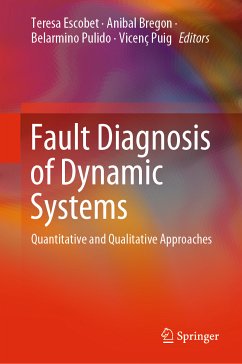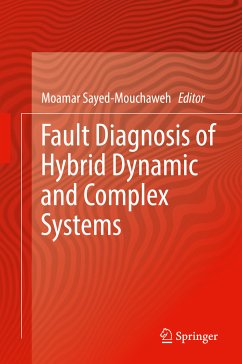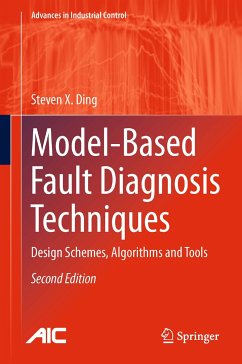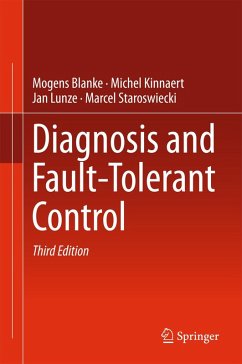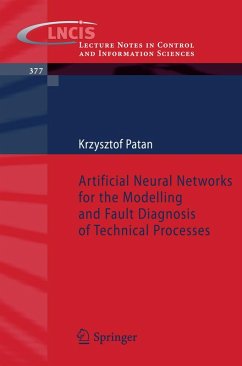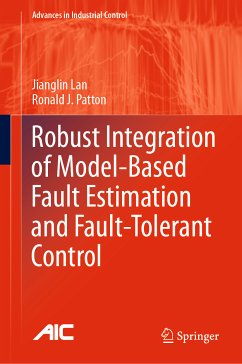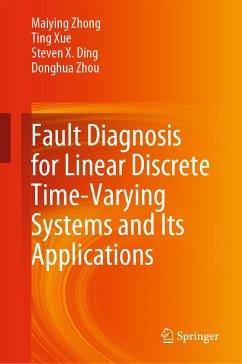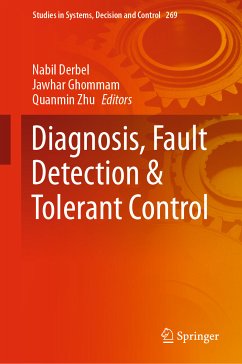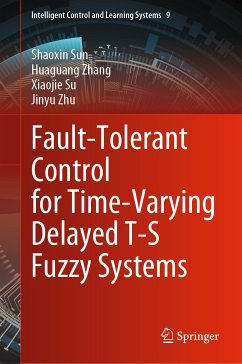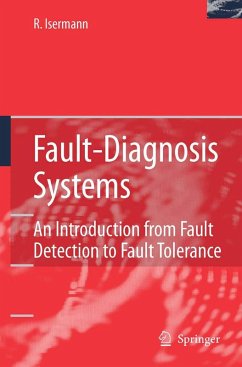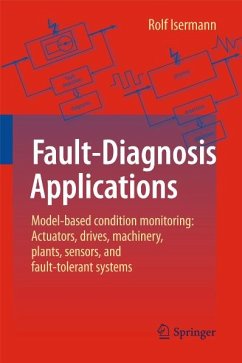
Fault-Diagnosis Applications (eBook, PDF)
Model-Based Condition Monitoring: Actuators, Drives, Machinery, Plants, Sensors, and Fault-tolerant Systems
Versandkostenfrei!
Sofort per Download lieferbar
72,95 €
inkl. MwSt.
Weitere Ausgaben:

PAYBACK Punkte
36 °P sammeln!
Supervision, condition-monitoring, fault detection, fault diagnosis and fault management play an increasing role for technical processes and vehicles in order to improve reliability, availability, maintenance and lifetime. For safety-related processes fault-tolerant systems with redundancy are required in order to reach comprehensive system integrity.This book is a sequel of the book "Fault-Diagnosis Systems" published in 2006, where the basic methods were described. After a short introduction into fault-detection and fault-diagnosis methods the book shows how these methods can be applied for ...
Supervision, condition-monitoring, fault detection, fault diagnosis and fault management play an increasing role for technical processes and vehicles in order to improve reliability, availability, maintenance and lifetime. For safety-related processes fault-tolerant systems with redundancy are required in order to reach comprehensive system integrity.
This book is a sequel of the book "Fault-Diagnosis Systems" published in 2006, where the basic methods were described. After a short introduction into fault-detection and fault-diagnosis methods the book shows how these methods can be applied for a selection of 20 real technical components and processes as examples, such as:
Electrical drives (DC, AC)
Electrical actuators
Fluidic actuators (hydraulic, pneumatic)
Centrifugal and reciprocating pumps
Pipelines (leak detection)
Industrial robots
Machine tools (main and feed drive, drilling, milling, grinding)
Heat exchangers
Also realized fault-tolerant systems for electrical drives, actuators and sensors are presented.
The book describes why and how the various signal-model-based and process-model-based methods were applied and which experimental results could be achieved. In several cases a combination of different methods was most successful.
The book is dedicated to graduate students of electrical, mechanical, chemical engineering and computer science and for engineers.
This book is a sequel of the book "Fault-Diagnosis Systems" published in 2006, where the basic methods were described. After a short introduction into fault-detection and fault-diagnosis methods the book shows how these methods can be applied for a selection of 20 real technical components and processes as examples, such as:
Electrical drives (DC, AC)
Electrical actuators
Fluidic actuators (hydraulic, pneumatic)
Centrifugal and reciprocating pumps
Pipelines (leak detection)
Industrial robots
Machine tools (main and feed drive, drilling, milling, grinding)
Heat exchangers
Also realized fault-tolerant systems for electrical drives, actuators and sensors are presented.
The book describes why and how the various signal-model-based and process-model-based methods were applied and which experimental results could be achieved. In several cases a combination of different methods was most successful.
The book is dedicated to graduate students of electrical, mechanical, chemical engineering and computer science and for engineers.
Dieser Download kann aus rechtlichen Gründen nur mit Rechnungsadresse in A, B, BG, CY, CZ, D, DK, EW, E, FIN, F, GR, HR, H, IRL, I, LT, L, LR, M, NL, PL, P, R, S, SLO, SK ausgeliefert werden.




